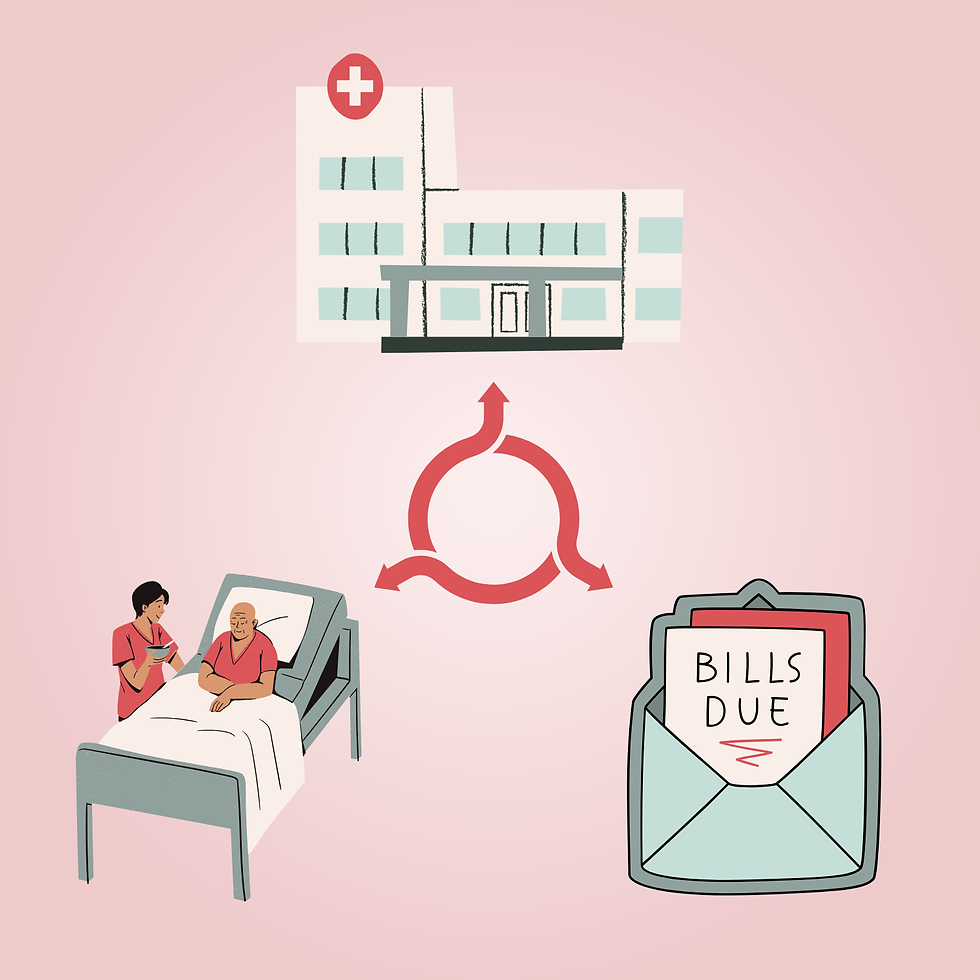Access to Medical Interpreter Services and Quality of Healthcare
- Nana Osaki
- Dec 28, 2022
- 2 min read
Medical care avoidance is a common problem in the US, with over ⅓ of participants in a study by the NIH stating that they have skipped an appointment due to high cost, aversion towards health care organizations, as well as discomfort interacting with physicians (1). One of the causes of discomfort is having to navigate confusing medical terminology. Many Americans with native language skills face health illiteracy, and this is only amplified for those with limited English proficiency. Furthermore, this issue is compounded by a shortage of available medical interpreter services, especially for those who already face barriers to quality care due to socioeconomic circumstances.

Immigration to the US has quadrupled since 1965 and immigration policy is one of the highly debated political topics as well as access to free healthcare (2). Documentation and health insurance is only the first obstacle to accessing quality healthcare; moreover, there is another aspect that many fail to consider: Language. In a study done by the UCSF Department of Medicine, it was shown that the “use of professional interpreters [was] associated with improved clinical care more than [the] use of ad hoc interpreters, and professional interpreters appear to raise the quality of clinical care for limited English proficiency patients (3)."
Further studies have shown that communication is the best when “patients have access to trained professional interpreters or bilingual providers (4).” This is especially true for those who require treatment and attention for mental health conditions where a diagnosis is based purely off of communication rather than traditional examination tests. The best plan of care for those with limited English proficiency is either having a bilingual care provider or access to a trained professional interpreter.
Americans with limited English proficiency are constantly reminded of the language barrier, however, this problem is rarely noticed by native speakers and healthcare providers. Healthcare and medical terminology is hard enough to understand already, and access to interpreters is crucial in preventing fatal errors. Providing better access to interpretation services is one of the many improvements that need to be made to our inequitable healthcare system.
Edited by: Huda Haque
Graphic Designed by: Devin Mulcrone
References
1) https://www.ncbi.nlm.nih.gov/pmc/articles/PMC4351276/
2) https://www.pewresearch.org/fact-tank/2020/08/20/key-findings-about-u-s-immigrants/
3) https://pubmed.ncbi.nlm.nih.gov/17362215/
4) https://pubmed.ncbi.nlm.nih.gov/15894705/



Comments